For FREE Consultation

Did you know that one-third of consumers in the United States use the internet to search for local businesses every day?
If your website is not taking advantage of local SEO, you’re missing out on a huge opportunity to reach more customers. And what local business owner wouldn’t want that?
This post explores the importance of local search engine optimization and how you can optimize your website to rank higher in local search results.
We also give you a simple local SEO guide including local SEO tips and local SEO tools to help you increase your local search rankings.
We’ll show you what to place in a winning local SEO strategy.
Before we get into how local SEO can help optimize your website, let’s first understand what it is.
Local SEO is the process of optimizing a website for specific locations near you. It focuses on providing relevant, accurate, and useful information about your local business to potential customers in your area.
Local rankings tend to be ranked by relevance rather than popularity, which means you don’t need millions of followers or likes to rank well locally.
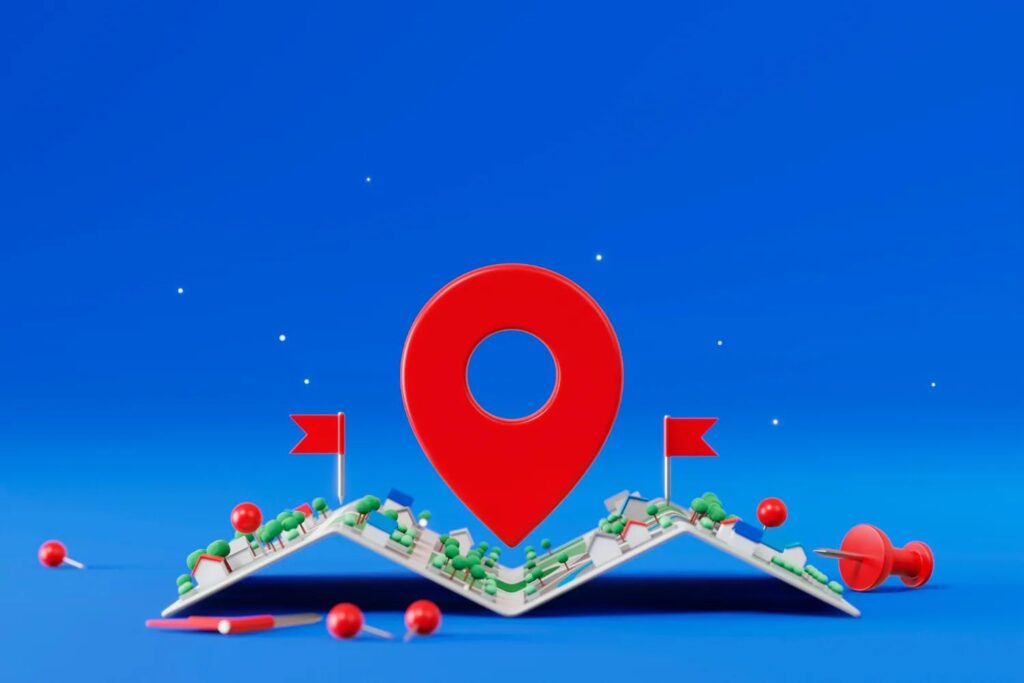
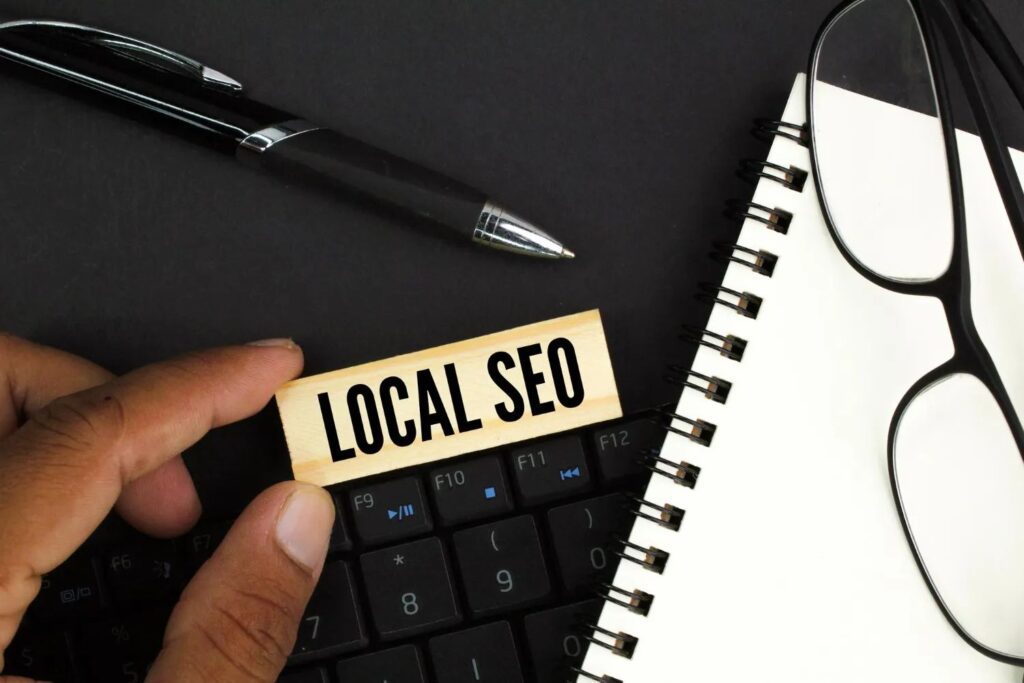
Nearly 97% of people use online searches to find a local business. Local businesses generally don’t have a lot of resources available for promoting themselves or their products and services, so it becomes difficult to attract new customers from outside their current sphere of influence.
Local SEO can help your business by targeting people who are already looking for businesses like yours and bringing them to your website.
Additionally, local SEO can help build trust with your potential customers as it reinforces the fact that you’re a legitimate business operating in the area.
Local SEO is not just important for local businesses, but it’s also critical in today’s digital world. Online marketing has become more competitive than ever before, and local SEO can give you an edge over your competition. Here are a few reasons why local SEO is important:
Local search results show up based on proximity and relevance, so they’re more likely to convert than generic ones that aren’t as close.
With more people using their mobile devices to search for local businesses, local SEO is becoming increasingly important.
In fact, a recent study found that nearly 56% of local searches were conducted on mobile devices.
Local SEO is one of the most cost-effective ways to reach more customers. Unlike traditional marketing methods, there are no geographical boundaries with local SEO.
You can target anyone in the world who is searching for your kind of business.
It gives you an edge over your competition because local business owners often don’t think about local search engine optimization or how it can benefit them.
If you want to stand out from the crowd, then localize! You’ll have less competition for top spots in SERPs (search engine result pages).
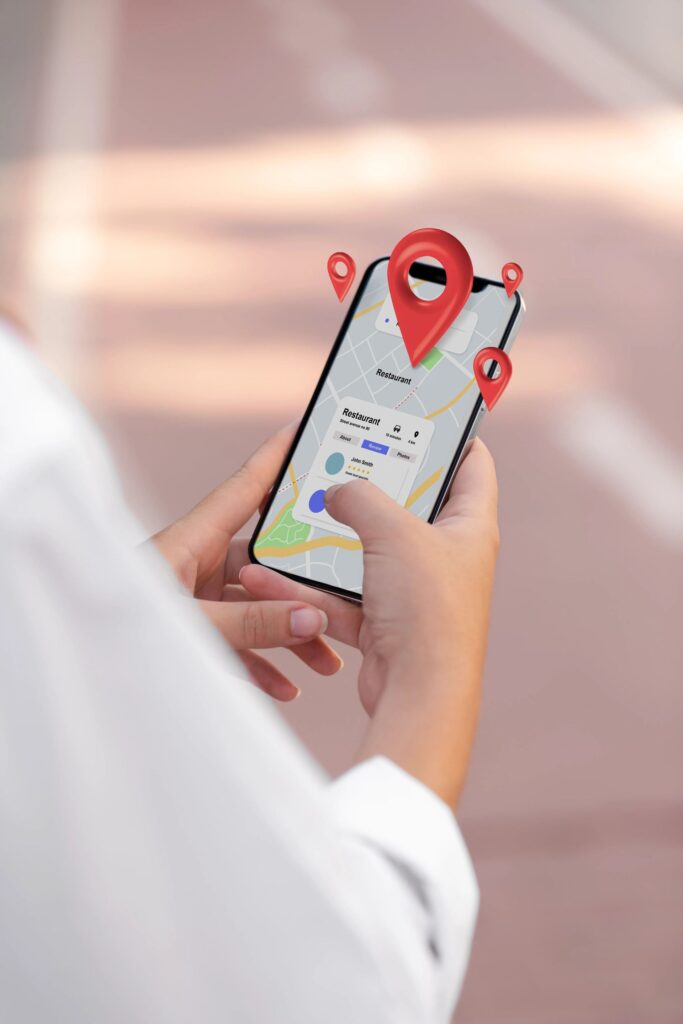
Search engines like Google and Bing have local business listings for all businesses in their database. When someone searches “car mechanic near me”, local results will show up first before generic ones that aren’t as close geographically.
Local SEO works by optimizing your website to be shown on local search results instead of generic ones.
This way, customers can find it easier when looking around their area or even across the country. By using local SEO, you’ll rank higher than other businesses that don’t use any tactics at all – making your business more visible online with less effort from you.
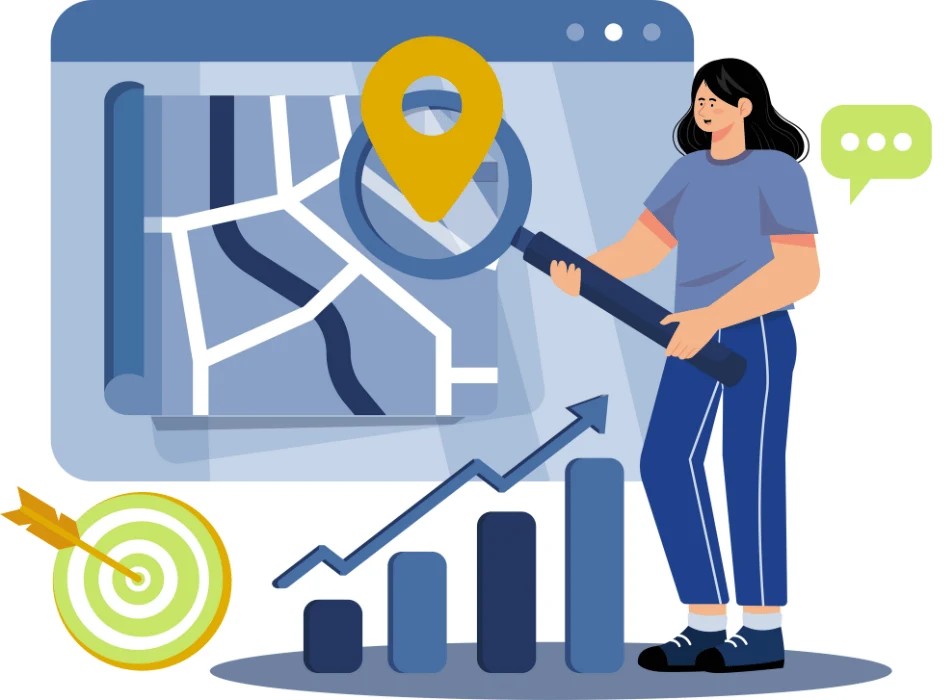
Local SERPs (Search Engine Results Pages) are the results that show up when someone does a local search.
The first page of these pages will usually contain organic listings for businesses in your area and sometimes paid ads, depending on what has been searched for and how relevant each result is to the query being made.
There are a few different types of local search engine results pages you need to know about:
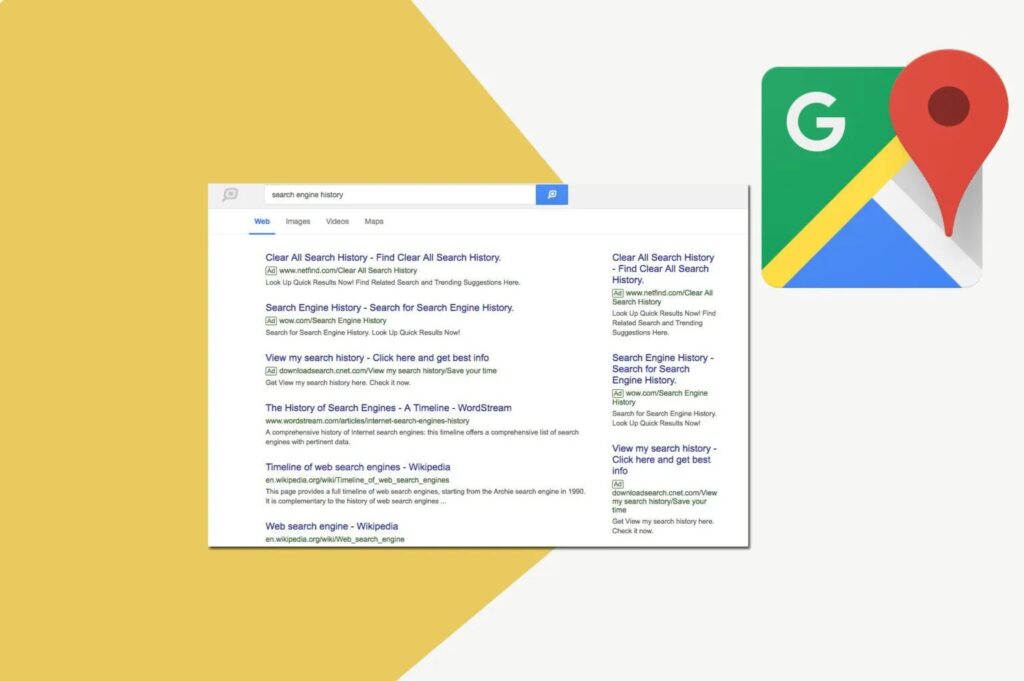
This is the most common type of local SERP that will show up in the first page of SERP. It usually contains three businesses.
These listings are based on factors such as proximity and relevance.
A map pack will show up when someone does a local search for a service provided through multiple businesses.
For example, if you search “local seo near me,” “attorney near me,” or any other business you may type with “near me”. A map pack with all the attorneys in your area who offer their services online will appear.
The results are generated by distance from the searcher’s location.
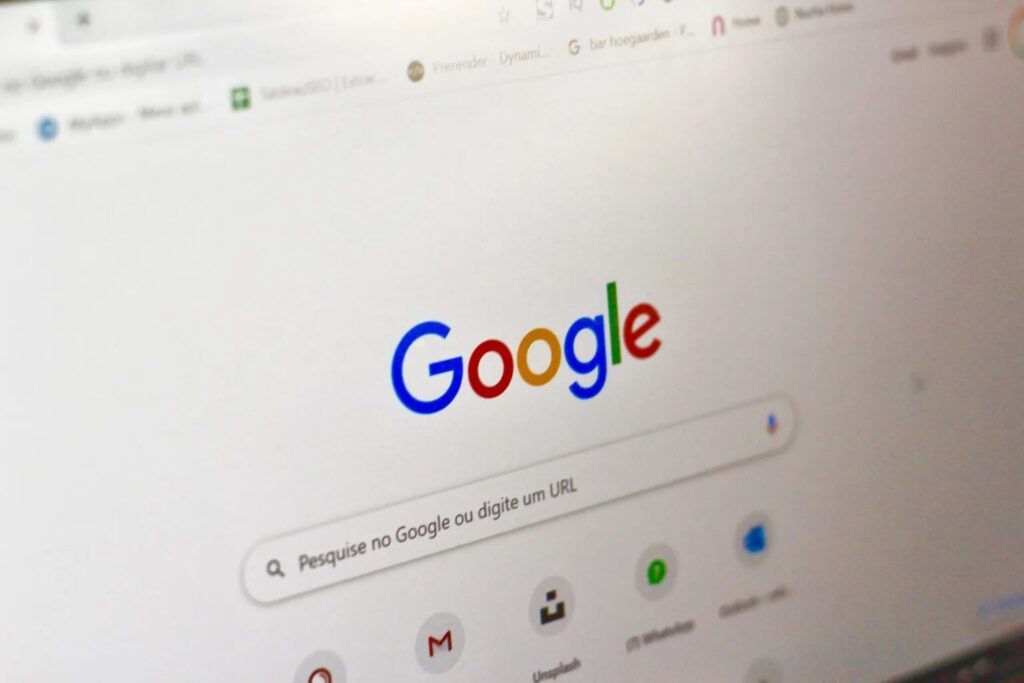
The local SEO scene has drastically changed in the past few years. A little over a decade ago, search engines relied heavily on links for ranking websites.
The quantity and quality of inbound links determined how high a website would appear in the search engine results pages (SERPs).
However, this approach led to abuse by spammers who created low-quality websites with the sole purpose of generating large numbers of links.
In response, Google developed its PageRank algorithm, which took into account other factors, such as the relevance and authority of a website’s content in order to determine its ranking.
This change ushered in an era of so-called “search engine optimization” (SEO), where businesses had to employ various techniques to improve their website’s rank.
To rank its search results, Google considers over 200 factors. While many of these factors are kept secret, a few have been revealed by Google. Some of the most important factors include:
Local SEO is one way for businesses to improve their visibility in SERPs, as it targets specific geographical areas.
By optimizing your website for a local search, you can ensure that your business appears in relevant search results for your target market.
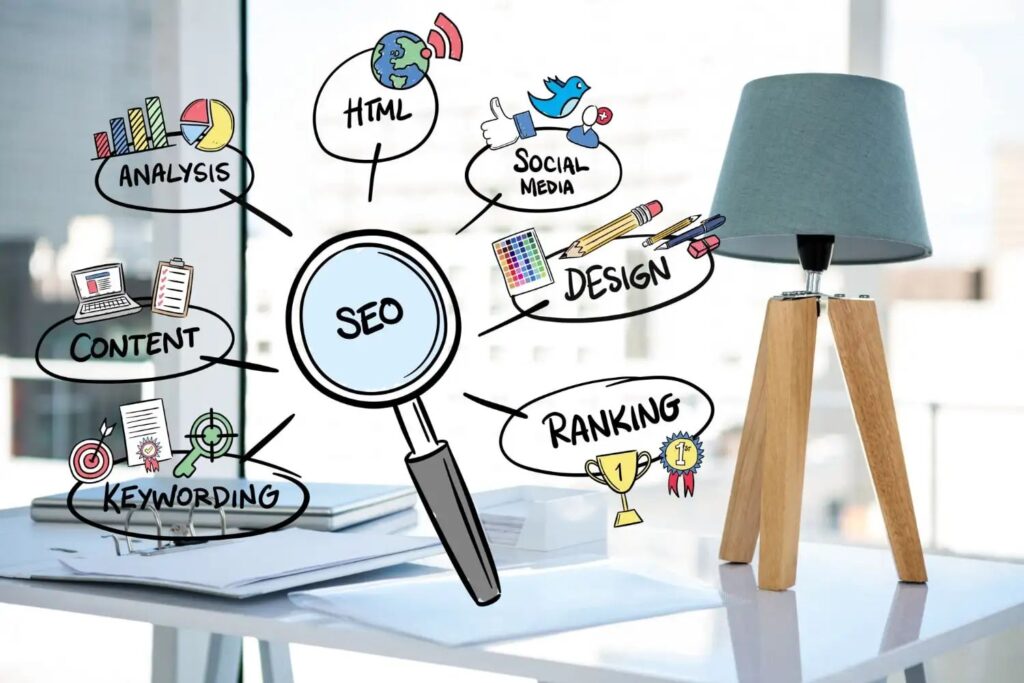
Every local business can benefit from appearing at the top of local SERPs.
However, businesses with a physical location (rather than just an online presence) will see the most significant benefits from optimizing locally because their customers are more likely to search for local businesses on their smartphones or computers.
According to Intuit, about 55% of Americans shop with local businesses.
But most small businesses don’t have a website, so they’re missing out on valuable local search visibility.
Optimizing your website for local search can help you gain an edge over your competitors by giving customers easy access to information about your business when they need it most.
The benefits of optimizing locally can also extend beyond search engines: You can use this strategy on social media too!
For instance, if someone uses Facebook to find businesses nearby, they’ll see results that match their interests based on location data (geotags).
There are many advantages to optimizing your website for local SEO. By doing so, you can improve your website’s ranking in search engine results pages (SERPs), helping prospective local customers find your business more easily.
Additionally, localized content is more likely to resonate with customers, increasing traffic and conversions.
Here are some of the main benefits of a winning local SEO strategy:
Local search optimization helps businesses increase their visibility on search engines. This can help customers find your business, increasing traffic and sales leads.
Optimizing your website for local SEO will improve the user experience by providing relevant information that is tailored to each individual location and needs.
For example, someone who searches “best pizza restaurant near me” would see results based on what they typed into Google (or another search engine). The user experience is also improved because it takes less time for users to find what they are looking for.
Localized content can be easily shared across social media platforms like Facebook, Twitter, and Google, which can help increase traffic to your website.
Additionally, customers are more likely to interact with good local content, providing you with valuable feedback that you can use to improve your business.
Businesses that advertise their services in print or online may see a higher return on investment (ROI) when they optimize their local business website.
This is because prospective local customers looking for businesses in their area are more likely to click on an advertisement if it appears on relevant search engine results pages.
A significant chunk of all local searches leads to a purchase. This means that you’ll make more money and grow your business faster. You’re more likely to get leads when you rank higher in local SERPs. And we all know that leads are the lifeblood of any business.
However, not all leads are created equal. You need to make sure that you have a process in place to convert leads into sales. This could include using a CRM or other lead-tracking software and having someone dedicated to following up with potential local customers.
When you localize your website content, you’re more likely to engage your customers. Localized content is more relevant and interesting to them, leading to increased traffic and conversions.
Additionally, by appearing in local business marketing local pack 2 (SERPs), you’re providing valuable information to your customers about where they can find your business.
According to the Search Engine Journal, approximately 70% of search engine users only click on the top three organic results (aka Local Pack).
It means that you can get more benefits from using this strategy than if you were paying for ads in SERPs or other online advertising platforms.
The Google Local Pack is one of the top ways for local sites to get noticed. One powerful way to gain an advantage over your competitors is to rank in the Google Local Pack.
When you use local keyword phrases in your web content and other marketing materials, people will recognize them as coming from an authority on the subject matter.
This helps establish strong brand recognition that can lead to increased traffic and conversions over time.
Google has over 200 ranking factors. Most local businesses miss this. One of the most important aspects of this is getting positive online reviews from your local community. Reviews help potential customers learn more about your business and its services.
They also show that you’re an authority in your industry, resulting in increased traffic and conversions. In fact, according to Bright Local, 87% of consumers trust online reviews as much as personal recommendations.
Local SEO (search engine optimization) helps you stay competitive with neighboring businesses. By using keyword research to find local keywords and optimizing your website for local searches, you can ensure that you’re the first business that potential local clients see when they search for related terms.
This is especially important if other local businesses in your area offer similar services. It’s crucial to have a strong online presence if you want to beat the competition and grow your business. To help you out here is a great keyword research tool to help you find the important local keyword(s) to give your business increased online visibility.
According to Oberlo, nearly 63% of searches are done on mobile devices. If you want to target these leads, then it’s important to optimize your website for SEO locally.
When you do this, you will increase online visibility so potential customers will see your business first when they search for related terms on their phone or tablet computer.
Local Link building is an important part of any SEO strategy. And one of the best ways to build local links with neighboring businesses is by using local SEO.
When you optimize your website for this strategy, you can reach out to other businesses in your area and ask them to link to your site. This will help improve your website’s authority and rank in SERPs.
Now that you understand the importance of local SEO, let’s look at how you can start optimizing your website for this type of search. Make sure you stay with the local SEO basics.
There are many ways to optimize your website remove, including creating localized content, using keywords in your titles, and meta descriptions, and adding social media channels like My Business which is now called Google Business Profile or Facebook Pages.
Absolutely, the Google Business Profile is a super underrated local SEO strategy. To do this effectively, you need to understand what customers want from their online experience. We have packages for you to choose from.

Before we talk in depth about your package, our team will create a Quick Start Audit to see what your business needs regarding search engine optimization services.
All packages normally include the following and much much more:
When optimizing your website for SEO, it’s important to remember that good content is king. Your web pages need high-quality, relevant information to rank well on SERPs and drive traffic back to your site.
Remember that a large percentage of all Google searches include local intent.
When people search for businesses locally, they already know what they want and are simply looking for the best option in their area.
The best way of doing this is by creating a blog post or article about what people search for locally when they want a particular service provided by businesses like yours.
Not only do local keywords rank higher in SERPs, but they also have a higher click-through rate. In fact, a study by Neil Patel showed that long-tail local keywords have a higher CTR (click rate) than non-local keywords.
As a business owner, it’s important to capitalize on this by using local keywords in your website copy and other marketing materials.
You can also use keywords within these posts so that Google knows where you stand out from other companies with similar services in the area. Don’t forget to include local keywords in your title tags because this will help searchers find you more easily on search engines.
Did you know that 70% of web searches come from mobile searches? Another way of optimizing your website for higher local rankings is by making it easy and convenient to access from any type of device, including mobile phones and tablet computers.
This means implementing responsive design elements on your website so that it looks good no matter what sort of screen size or orientation someone is using including a mobile search.
Google now uses mobile-friendliness as one of its local ranking signals. If your site doesn’t display correctly on phones and tablets, it will likely rank lower on search results pages. Make sure to test how your website appears and functions on different devices and browsers (such as Firefox or Chrome) to ensure optimal viewing and easy navigation for all visitors. You can use Google’s Mobile-Friendly Test tool to see how easily people can access your site from their phones.
According to research conducted in 2016, 56 percent of local businesses have not claimed their Google Business Profile (formally Google My Business) listing. So, if you want to take your local SEO efforts up a notch, then you should claim and optimize your Google My Business profile. This lets business owners create a listing for their company on Google Maps. In addition, it also allows you to add photos, videos, and other information about your business that can help local customers learn more about what you do.
You can even use it to manage customer reviews and respond directly to them.
Here is a big bonus for you! You are also able to create local content to place on Google posts. So, when people do a google search it makes it easier for your local audience to find them.
Since almost 86% of people who search for businesses locally on Google start with a map, you need to make sure that your website includes a location page. This way, if someone finds your business on Google Maps or another search engine, they’ll know exactly where it is located and how to get there.
Make sure this information appears in both the HTML code of each web page as well as any meta tags associated with those pages so users can find them easily when searching online for local businesses near them.
One of the most common mistakes businesses make when optimizing their website for local SEO is not keeping their business information updated across different directories and listings. This can hurt your ranking since it shows that you’re not bothered with maintaining an accurate online presence. You should regularly check your NAP (name, address, phone number) local citations on sites like Google Maps, Yelp, Facebook, and others to ensure that they all match. If there are any discrepancies, then be sure to update them as soon as possible. Hint: Ileana Kane Marketing makes sure they place the customers’ URL under the phone number…a little extra push to get your URL out there.
In addition to this, also add your company website URL and social media links wherever you can. This will help customers find you online and connect with you more easily. You can use a tool like Moz Local to help you identify and fix any inconsistencies.
One of the best ways to show prospective customers that you’re a credible and trustworthy business is by having reviews from past customers on your website and social media profiles. These builds trust and can help persuade someone who’s on the fence about using your services. It’s important to make it easy for customers to leave reviews on your site, whether through a form or link that they click on after making a purchase.
You can also set up alerts to notify yourself whenever someone writes a review about your business. If you’re using WordPress, then try adding the WP Review Pro plugin to your site. This allows visitors to leave reviews with star ratings on any page or post what they want.
Schema markup is code that tells search engines what your content is about. This can help your website rank higher in search engine results pages (SERPs) because it gives them more information to work with.
You can use a tool like the Schema Markup Validator to test how well your website’s schema is implemented. If you find any errors, then you can use the code provided by Google to fix them.
One of the best things you can do for your local rankings is to keep your website updated with fresh and relevant content. This tells search engines that your site is active and worth returning to. Plus, it helps keep people interested in what you have to say.
You don’t need to blog every day or even every week, but make sure that you’re adding new content on a regular basis. You can also share blog posts and other content from your website on social media to help get the word out.
Social media signals are an important part of local SEO. They can help you connect with prospective customers who live in your area and are looking for businesses that offer services like yours. To set up social media signals, make sure all of your profiles have the same name and contact information as your website or Google Business Profile listing.
You should also create separate pages on each platform for different locations if needed. For example, Starbucks has one page dedicated to its flagship store in Seattle while there’s another page dedicated to its location near Central Park South, New York City.
According to Google, 27% of the global online population is using voice search to find local businesses. With the rise of voice search, it’s important to ensure that your website is optimized for this type of interaction. This means considering how people might search for your business using their voice rather than typing.
For example, someone looking to find a restaurant in New York City might type “restaurants NYC” or “best restaurants NYC” into Google. But if they were using voice search, they would probably say something like,” where can I get good food near me?”
To optimize your website for voice searches, use natural language and long-tail keywords with an average of four words per query. You should also think about what questions people ask when searching on Google Assistant or Siri so that you can answer them directly through content creation efforts such as blog posts or FAQ pages on your site.
Internal linking is the process of linking one page on your website to another. This helps Google understand your website’s structure and can improve your SEO ranking. When you add links to other pages on your site, make sure that they are relevant and provide useful information to the reader.
You also want to use keyword-rich anchor text so that the search engines know what each link is about. You don’t need a lot of internal links for local SEO, but it’s important to have a strong foundation in place.
A good way to do this is by using a tool like Screaming Frog or Ahrefs to find all of the pages on your website that aren’t linked together. Then, you can start adding links where they make the most sense.
It’s important to have consistent business information across all of your listings. This includes the name, address, and phone number (NAP). If there are inconsistencies in any of these areas, it could hurt your local SEO ranking because search engines might not be able to tell whether or not they’re legitimate listings for one company.
Start by creating a spreadsheet with all of the different places where you have an online presence, such as social media platforms and review sites like TripAdvisor or Yelp. Then go through each listing individually to ensure that everything is up-to-date and correct before submitting them to directory websites like Google Business Profile.
Backlinks are links from other websites to yours. They help Google understand that your site is credible and authoritative in its niche, which improves local SEO rankings. To get high-quality backlinks, you need to start by identifying your competitors. Then, reach out to the websites linking to them and ask if they would be interested in linking to you.
Also, make sure that you’re actively participating in online communities relevant to your business. This will help you build relationships with others who might be interested in linking back to your site. You can also try creating content that is so good that other websites will want to link to it naturally.
When you have a page for each product or service that you offer, it becomes easier for Google to understand what your business is about. This can help improve your local SEO ranking.
Start by creating a list of all the products and services that you offer. Then, create a web page for each one with clear and concise information about what it is and how it can be used. Make sure to use targeted keywords in the title tag and throughout the content on the page so that search engines will know what it’s about.
Local SEO is a long-term strategy, and it’s important to monitor your results over time so that you can make changes as needed.
Use Google Analytics and your Google Search Console or another tool of your choice to track website visits, leads generated from SEO efforts, and how much revenue those leads are generating.
This information will help you determine whether your campaign of local searches is effective and worth continuing.
If not, then you can make changes to improve your results.
Ileana Kane Marketing is a digital marketing agency that helps businesses grow their online presence through local SEO strategies like content creation, link building, and keyword research. We take an integrated approach to all our client’s projects so that they can achieve the best results possible with minimal effort on their part.
Our team has extensive knowledge in all areas of SEO, including local search engine optimization strategies that are tailored specifically to your business needs so you can increase traffic on your website while generating high-quality leads.
Ileana Kane Marketing’s local SEO services can help you to make sure your business is a Google trust site, and it is visible in Local search results, driving more traffic and ultimately resulting in more sales. Contact Ileana Kane Marketing today to learn more about how we can help you to grow your local business.
Copyright 2025 | Ileana Kane Marketing